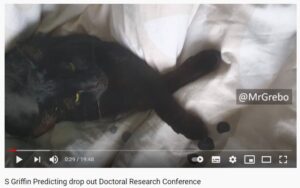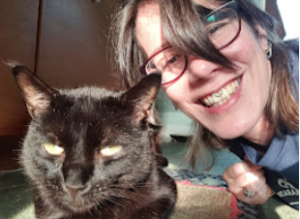
Talking about your research
As a PG researcher, you will inevitably have to give presentations on your research. An opportunity came up in July for me to do just that with an international group of doctoral students as an audience. Hosted by Liverpool John Moores Centre for Educational Research, I recommend you take a look.
Although I had only just completed my 1st year and so had not yet carried out any research, I was still excited to share my many ideas and thoughts.
This was the problem! How to condense a complex subject I really care about so that I can share something interesting with people who nothing about my topic or context. In about 15/20 minutes, when I had enough trouble cutting my summative assessment on the subject down to 10,000 words.
Scene setting
I needed to introduce myself and provide enough about my context that the audience could appreciate the situation. This was the (relatively!) easy part; a bit about me and my background and then linking into the work I am researching with a few headline statistics showing its scope and scale.
Narrowing the focus
Then came the hard part; deciding what to focus on – what the simple “message” was that I wanted the audience to take away with them. I decided at this early stage my message should be
I am researching if we can use predictive analytics in Toastmasters.
We have all sat through presentations or speeches where the focus is unclear because the speaker wants to tell you everything or doesn’t really have a clear idea what their message should be. My focus was so that if someone in the audience was asked, “what was that talk about?” they could respond with that one simple message.
Content
I decided that I would use a piece of work I had recently done as the basis for my presentation. My summative assessment began with a literature review and ended with my research questions.
Constructing the narrative
Clearly, a well-constructed, academic literature review is too complex to get across in a presentation, but this is not my intention. In my 15/20 minute presentation I just want to get across my one simple message.
I approached this by working backwards.
- What do you want the audience to know?
- I am researching PA in Toastmasters
- How do you get them to that conclusion?
- Show how my journey led me there
- What were the key steps/milestones?
- The research gaps I found
- How did I find these?
- Key findings/discoveries (studies) that led me there
Remember less is more! You are just trying to get your audience to remember your one message. Do not overcomplicate as they won’t be able to process it.
If you were asked to present on your research tomorrow, what would your central message be?
You can see a recorded version of my presentation here.
Written by
 Selina Griffin @Psylina
Selina Griffin @Psylina
After completing my BA (in Classics) in the usual way at a bricks and mortar university, I discovered the Open University and completed an MA. Years later after some soul-searching, I switched fields and completed an MA in Online and Distance Education which has led to me pursuing my EdD in the realm of learning analytics. I am fortunate enough to now also work for the Open University. I also have my own personal blog where I discuss my research, running and my cat @MrGrebo

